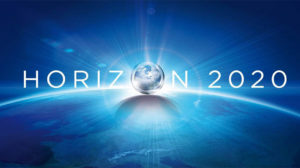PMMA recycling project granted Horizon 2020 funds

The project coordinated by the Dutch company, Heathland, was launched on 1 October 2018 for a four year duration. It is supported by a 6.6 M€’s funding from the European Union Horizon 2020 Research and Innovation programme. MMAtwo collaborative consortium gathers 13 partners from six different countries. The project aims at developing a new and innovative process to recycle post-industrial and end-of-life PMMA waste into second-generation MethylMethAcrylate (MMA) raw material.
Recycling only 10% of the PMMA produced in Europe could enable the industry to manufacture an additional 1 billion € worth of the product. The Cefic/ Petrochemicals Europe’s Methacrylate Sector Group will take an active part in the project and sit on the Advisory Board.
The MMAtwo consortium consists of partners representing every step of the PMMA value chain:
- Heathland, a Dutch collector and recycler of PMMA waste;
- Comet Traitements, a Belgian recycler of end-of-life vehicles;
- Ecologic, a French private non-profit company in charge of Extended Producer Responsibility compliance for WEEE;
- Arkema, a French PMMA producer;
- Delta Glass (part of Polyplastic Group), a Dutch producer of PMMA windows;
- JSW Europe, a German based division of Japan Steel Works and core technology provider;
- Speichim (part of Séché-Environnement group, French leader of waste treatment), a French based specialist in purification of solvents and chemicals;
- AKG-Gazbeton, a Turkish company manufacturing heat-insulated, light, non-combustible autoclaved aerated concrete blocks and reinforced products as well as insulating boards;
- University of Gent, a Belgian academic partner to train researchers on polymer recycling;
- Quantis, a Swiss based specialist in Life Cycle Analysis;
- Process Design Center, a Dutch SME for process development, integration and optimization;
- Certech, a Belgian applied research center in chemistry, specialised in emissions and odours of materials and polymer recycling standards;
- and Ayming a French consulting group supporting the project management, communication and dissemination activities.
For more information, please consult the SPIRE 10 call on the European Commission’s website and the PMMA website.
